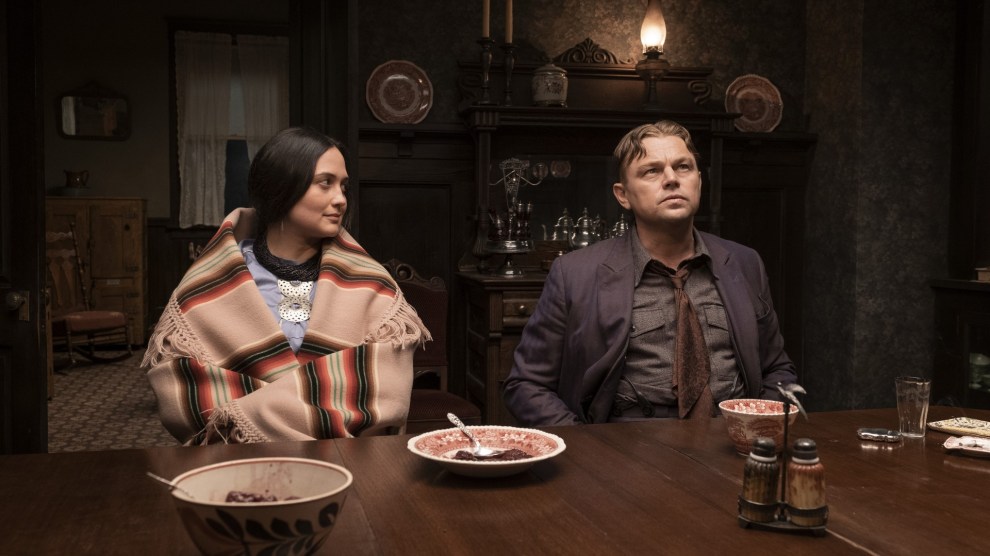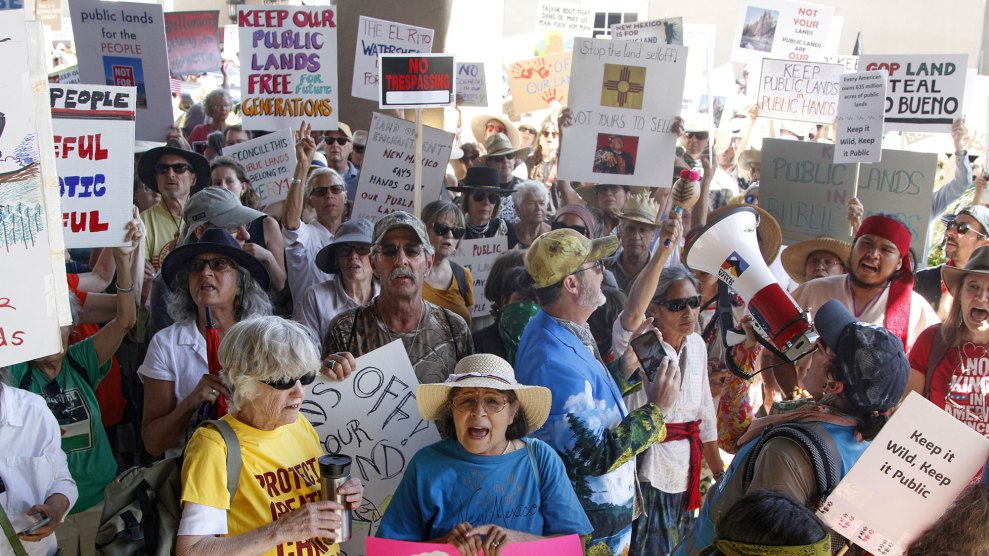
Lily Gladstone and Leonardo DiCaprio in “Killers of the Flower Moon."Apple TV+
After a screening of Martin Scorsese’s slow-drip drama Killers of the Flower Moon in New York earlier this month, an agent with the film’s promotion team asked what I thought. At the time, all I could say was, “Brutal.”
The movie, which is based on a book of the same name, stars Lily Gladstone, Leonardo DiCaprio, and Robert De Niro (and, boy, do they shine) and tells the chilling true story of how white settlers carried out dozens of murders of members of the Osage Nation in the 1920s. It’s a dark—and essential—tale of American history that I, like KOTFM author David Grann himself, can’t recall learning about in school.
But in Oklahoma, where the murders took place, teachers say they aren’t sure they’re allowed to teach it in class. Under state measure HB 1775, schools are prohibited from teaching the idea that “an individual, by virtue of his or her race or sex, is inherently racist, sexist or oppressive, whether consciously or unconsciously” or that “any individual should feel discomfort, guilt, anguish or any other form of psychological distress on account of his or her race or sex.” (The law is similar to the policies in states like Florida and Texas, among a handful of others, that aim to block the discussion of themes like systemic racism, unconscious bias, and privilege.)
Of course, HB 1775 doesn’t specifically ban Killers of the Flower Moon. But the law is so vague that some educators reportedly say that they have avoided assigning the book and other texts out of fear of punishment. According to the Oklahoman, for instance, a Dewey High School teacher said last year she decided against adding the book to her curriculum “because she feared discussing the racial dynamics of the Osage murders could prompt an HB 1775 complaint.” And according to the ACLU, which filed a lawsuit challenging the legislation in 2021, “school districts in Oklahoma have instructed teachers to no longer use certain terms, including ‘diversity’ and ‘white privilege’ in their classrooms, and have removed seminal works of literature such as ‘To Kill a Mockingbird’ and ‘Raisin in the Sun’ from its list of ‘anchor texts.'”
Citing these concerns, Native groups—including the Inter-Tribal Council of the Five Tribes (the Cherokee, Chickasaw, Choctaw, Seminole, and Muscogee nations) as well as the Osage Nation Congress—have formally opposed HB 1775. “The vague wording of the law has contributed to fear among school districts and teachers about teaching accurate historical information,” the council wrote last year, “including accurate history of the experiences of Native American peoples in Oklahoma.”
Grann, a former middle school teacher, is also among the chorus of voices who have opposed Oklahoma’s law, telling Vanity Fair on Friday that it’s led to a form of “soft censorship.”
“Even when laws don’t explicitly say ‘we’re banning this book’ or ‘we are banning this subject,’” he said, “they are leaving teachers and administrators always worried about losing their certification and their accreditation.”
After seeing KOTFM, I have no doubt that Scorsese intends to make audiences uncomfortable—that’s the film’s strength. As Osage Congressmember Whitney Red Corn put it last year, learning history “stirs feelings of compassion, injustice and unfairness. It shows us moments in our past where we did not respect our fellow human beings. History is emotional—as it should be.” But in Oklahoma, that discomfort might be grounds for legal action.

















